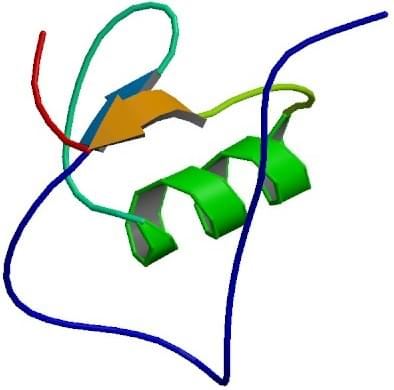Creative Biolabs offers the novel hPSTI phage display library construction service by using the advanced Hi-Affi™ phage display platform. Adopting this platform enable the generation of high affinity and diversity PSTI library with the best quality.
Pancreatic secretory trypsin inhibitor (PSTI), also known as tumor-associated trypsin inhibitor (TATI) or serine protease inhibitor Kazal-type 1 (SPINK1), belongs to the group of Kazal type inhibitors. Human PSTI, encoded by the SPINK1 gene, is a small protein of 56 amino acid residues with an exposed hypervariable segment. This segment is presented as seven amino acids lengths (residues 17 to 23) peptide at the tip of trypsin-inhibitory loop and located between two disulphide bridges on the secondary structure.
The mutations of PSTI have been considered relate to hereditary pancreatitis. As an inactive zymogen form of trypsin, trypsinogen is generated and stored in the pancreas under normal pathway, while occasionally will be auto-activated. PSTI serves to metabolize prematurely activated trypsin to prevent the enzyme from incurring cellular damage to the organ. The pancreas is subject to repeated episodes of damages in absence of PSTI. Recently, PSTI has also been associated in the study of prostate cancer.
To investigate the PSTI mutation or develop a novel scaffold protein, the construction of PSTI phage display library may be an ideal choice. One recommended PSTI library suggests randomize or replace the hypervariable segment of trypsin-inhibitory loop. Then functionally display the peptides as pIII fusion proteins by phagemid and against trypsin or anti-pIII antibody for further selection. Relevant research indicates the structural changes of the inhibitory loop do not affect protein folding of PSTI, which enable this small size protein to play a role as scaffold in the development of lead substances for therapy.
Scientists of Creative Biolabs have generated scaffold protein libraries by our proprietary Hi-Affi™ phage display platform. Based on phage display technology, which is an exogenous gene expression method through fusing the target genes to bacteriophage coat proteins then displaying on the phage surfaces to select specific binders, Hi-Affi™ platform also integrates trimer codon technology and NNK method. This platform is specifically designed for sorting and isolating protein or peptide targets with more randomicity which resulting in improved affinity and diversity for generated libraries. It is able to construct PSTI phage display library with 100% precise mutant and over 1010 diversity.
Creative Biolabs commits to provide the best library construction service to assist our client’s research goal. Our seasoned scientists have generated more than 50 kinds of scaffold libraries for our global customers and are pleased to design specialized custom-made library for individual demand.

Fig. 1 Three-dimensional structure of a recombinant variant of human pancreatic secretory trypsin inhibitor (Kazal type). (PDB ID: 1HPT)
All listed services and products are For Research Use Only. Do Not use in any diagnostic or therapeutic applications.